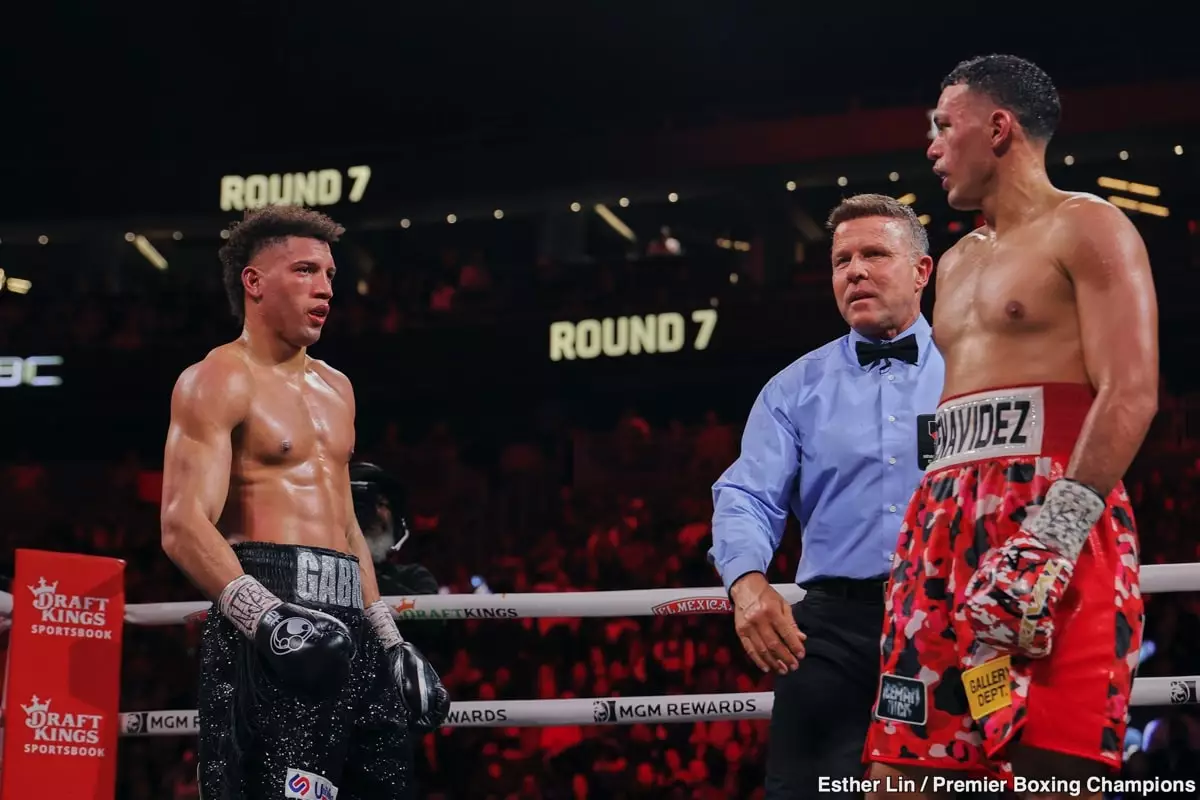David Morrell’s upcoming light heavyweight bout against Imam Khataev on July 12th is shaping up to be a critical juncture in his boxing journey. After tasting defeat for the first time against David Benavidez earlier this year, Morrell recognizes the stakes are higher than ever. The fight, scheduled at the Louis Armstrong Stadium and broadcast on DAZN PPV, is more than just another match; it’s a litmus test of Morrell’s growth, adaptability, and mental resilience in the face of adversity.
Morrell (11-1, 9 KOs) acknowledges that the loss to Benavidez was a learning experience. The setbacks he faced exposed predictable patterns and tactical flaws that his opponents have repeatedly exploited, particularly his relatively low punch output at light heavyweight. Against Benavidez, and previously against Radivoje Kalajdzic, Morrell’s inability to consistently pressure and overwhelm opponents with volume and varied attacks was evident. Hence, his upcoming bout is a chance to prove that he has evolved beyond these shortcomings.
Analyzing the Opponent: Khataev’s Strengths and Vulnerabilities
Imam Khataev is no ordinary adversary—he brings an undefeated record (10-0, 9 KOs) into the ring, and his style has drawn comparisons to the formidable Artur Beterbiev. Khataev’s combination of raw power and polished technique, honed through impressive amateur pedigree including the 2020 Olympics, makes him a formidable challenge. His punch power and aggressive approach have the potential to overwhelm less adaptable fighters.
However, Khataev’s recent performance against Durval Elias Palacio revealed cracks in his stamina and defense, as he absorbed significant punishment and showed vulnerability to sustained pressure. This suggests that while Khataev can dominate early on with his power, his endurance and ability to handle prolonged exchanges might be limited—a significant factor that Morrell could exploit.
Adjustments Required: Morrell’s Tactical Imperative
The central narrative for Morrell is clear: his previous tactics won’t suffice against a potent and relentless opponent like Khataev. His past fights underscore an urgent need to increase volume, improve punch variety, and maintain constant pressure—elements that not only score rounds convincingly but also create openings for potential knockouts.
Morrell’s hesitation to consistently unleash combinations at 175 pounds contrasts sharply with his knockout success at super middleweight, where his power was more effective. This weight class shift demands an evolution in his boxing style, emphasizing sustained activity and ring generalship over single power punches. Without this, Morrell risks mirroring the mistakes he made in his loss to Benavidez, where insufficient punch output allowed his opponent to dictate the fight’s rhythm.
Psychological Edge and Preparation
Confidence and mental preparedness play subtle yet decisive roles. Morrell’s remarks signal an awareness of the level of competition and a firm commitment to tailored preparation. He openly acknowledges Khataev’s aggressive style and power, indicating that his game planning includes readiness for a physically intense encounter. This psychological clarity is promising, but the true test will be how well Morrell executes these plans under pressure.
Furthermore, Morrell’s fighters’ camp showing the willingness to place him on a high-profile card organized by Turki Alalshikh reflects belief in his marketability and talent. Yet, the flip side is that a poor performance could derail his trajectory, making this fight a high-risk, high-reward scenario.
The Bigger Picture: Morrell’s Path Forward
Watching Morrell’s development through these challenges highlights a familiar story in boxing—a gifted fighter transitioning from promising prospect to legitimate contender. The path is riddled with tough lessons, and adjustments made in this phase define long-term viability.
It’s important not to underestimate Morrell’s potential to rebound. His talent is evident, as is his power, but evolution is mandatory. He must shed past inadequacies related to punch volume and tactical flexibility. Only then will he emerge as more than just a promising fighter—he can become a confident, strategic, and feared light heavyweight force.
July 12th presents a crucible. Morrell needs to blend lessons learned with sharpened skills and a heightened tactical approach to impose himself on Khataev, balance the scales of power and stamina, and display a maturity that his prior setbacks lacked. Whether that transformation occurs remains to be seen, but the opportunity to prove it couldn’t be more compelling.

